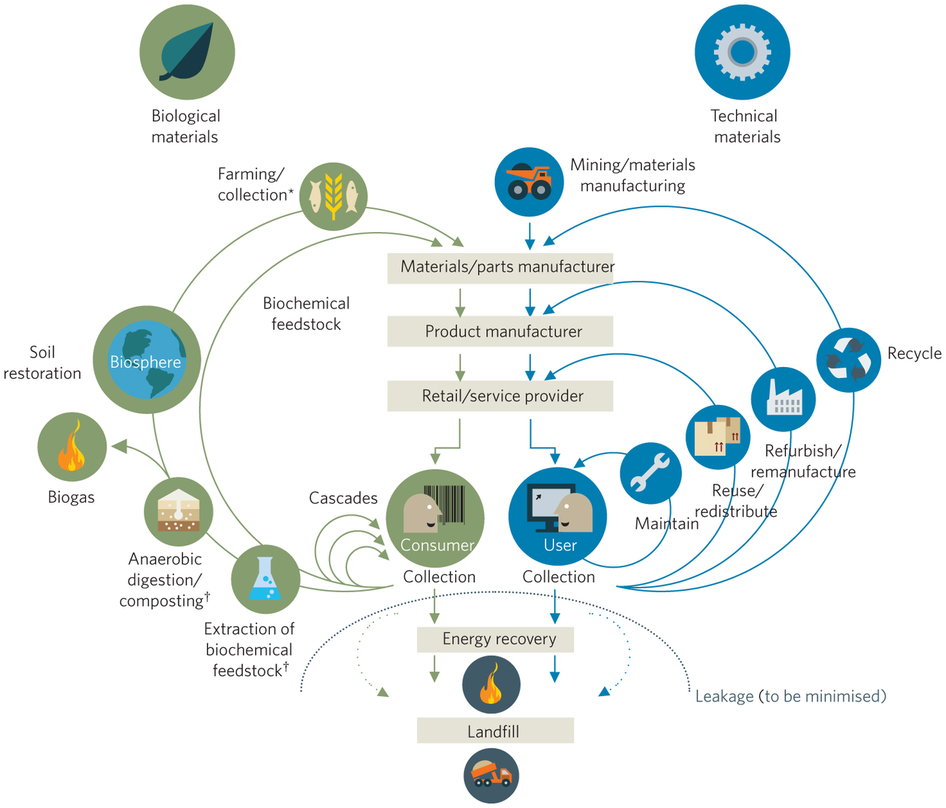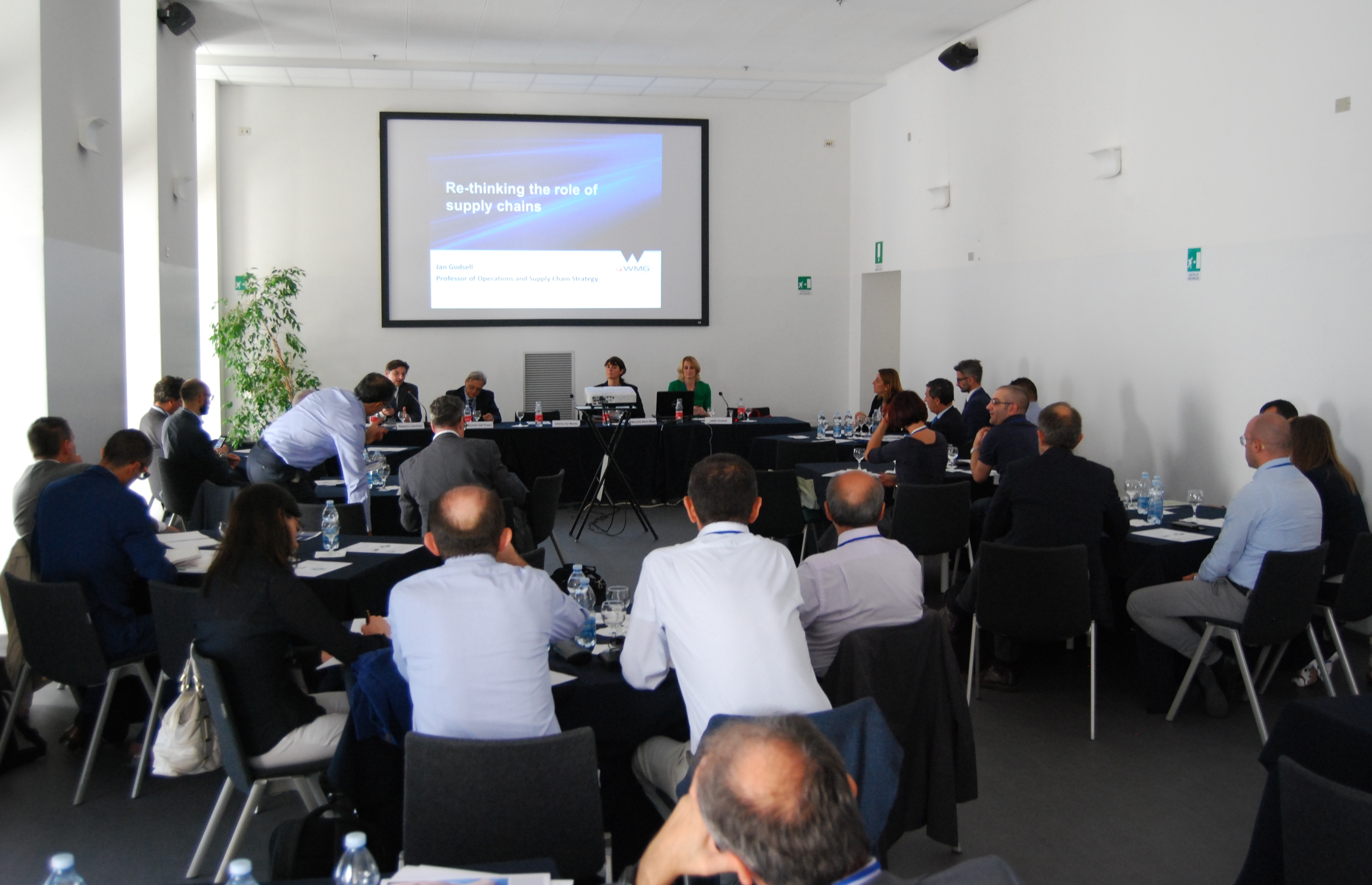Re-thinking the role of supply-chains: a meeting with prof. Janet Godsell
On the 27th September 2016 we had the chance to take part, as one of the main sponsors, to an interesting meeting and debate around the topic "Re-thinking the role of supply chains" organized by SCM Portal within its Supply Chain Innovation Hub initiative.
The debate was lead by Janet Godsell professor of Supply Chain & Operations Strategy at the University of Warwick, who made an inspiring presentation on the main trends impacting supply chain and manufacturing processes and economic systems in general.
Janet Godsell summarized these new trends using 5 key words as focus of her presentation:
-
Industry 4.0
-
Circular Economy
-
Omnichannel
-
Market Mediation
-
Consumption Driven Supply Chain.
These are apparently different topics, even though, as professor Godsell pointed out, they are part of the same change process we are experiencing now and in the next future.
For this reason they must be examined together, as different sides of the same main trend.
What we brought home
The presentation touched a lot of topics so that it's difficult to sum up the content of the whole event. However, we will try to recap the main points we fixed in our minds after the discussion with Janet Godsell.
1. Industry 4.0
A lot of debates about "Industry 4.0" generally focus on technology rather than on business processes. However to pass to the next level and go towards the 4th industrial revolution, manufacturing companies do not only need technology but also have to rethink their business processes. Industry 4.0 is therefore a new paradigm where technological innovation and business process innovation together will redesign business models for the manufacturing industry and for the whole economic system.
2. Circular Economy
This term is generally referred to an economic system where both biological and technical cycles are restorative and regenerative by design, and which aims to keep products, components and materials at their highest utility and value at all times. It's not only a matter of recycling but, again, a change in the companies' business models which will shift from a "product-oriented" to a "service-oriented" model. In order to do that we have to change our way of thinking as consumers: we have to change our perception that new things are better than old things, even if they provide the same functionality and level of performance.

3. Omnichannel
Generally associated with the retail industry, the term "omnichannel" actually refers to a cross-channel business model that companies use to increase customer experience. The approach can be applied to different sectors and is based on the use of different channels such as physical locations, webpages, social media, live web chats, mobile applications, etc. through which the consumer can be in constant contact with a company. On the other hand, companies can gather data and information about the consumer and his purchasing behaviour.
This has a big impact not only on marketing strategies but also on demand planning and supply chain management.
4. Market Mediation
In the last few years, new business models connected with the concept of "sharing economy" have been developed. These companies, through the use of web applications or mobile apps, enable and facilitate the exchange of goods or services between people or companies. They act as business mediators between market demand and offer. Their success depends on some factors, such as the lowering of entry barriers in specific market sectors, thanks also to the use of new technologies (for example, if in the past a taxi driver had to know all the roads of a city by heart , now this information is available to all on our smartphones) and the accessibility of the service, also in terms of convenience, for the final consumer/user.
5. Consumption-driven supply chain
How can we anticipate a change in consumer behaviour?
For example grocery shopping habits are now changing since consumers would rather make daily purchases in small next-to-home shops than a once-a-week purchase in big stores. This new consumer trend can be an issue for those retailers who invested in big structures in the past. That's why company need to know their consumers and how their purchasing behaviour is changing over time.
Who checks if the consumer uses the product in the way the company think it should be used?
Both these questions can be answered thanks to the information and data gathered through new technologies, such as the Internet of Things. IoT devices applied to products or inside the stores, can provide customers with instructions and information on how to use a product properly and also collect data and information on consumer behaviour.
The information gathered through different channels, both online and offline (the consumption driven supply chain concept is stricly related to the omnichannel one) will of course have a strong impact on supply chain and operations management. We will pass from a traditional supply chain to a "consumption driven" supply chain where the competitive advantage is based on the capacity to response in real-time to consumer demand and to manage flexible planning cycles thanks to the collaboration and visibility shared across the supply chain.

The debate is, of course, still open but we came back with interesting suggestions which let us glimpse a future where technologies, people, organisations and processes will be involved in a process of change which has just started.
____
Veronica Peressotti
Tecnest


